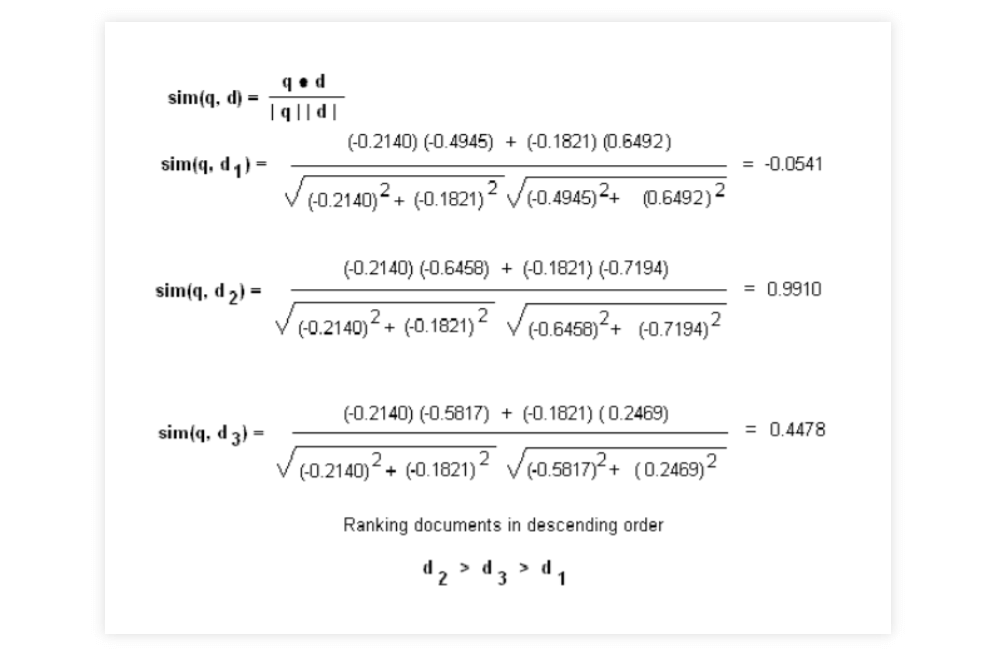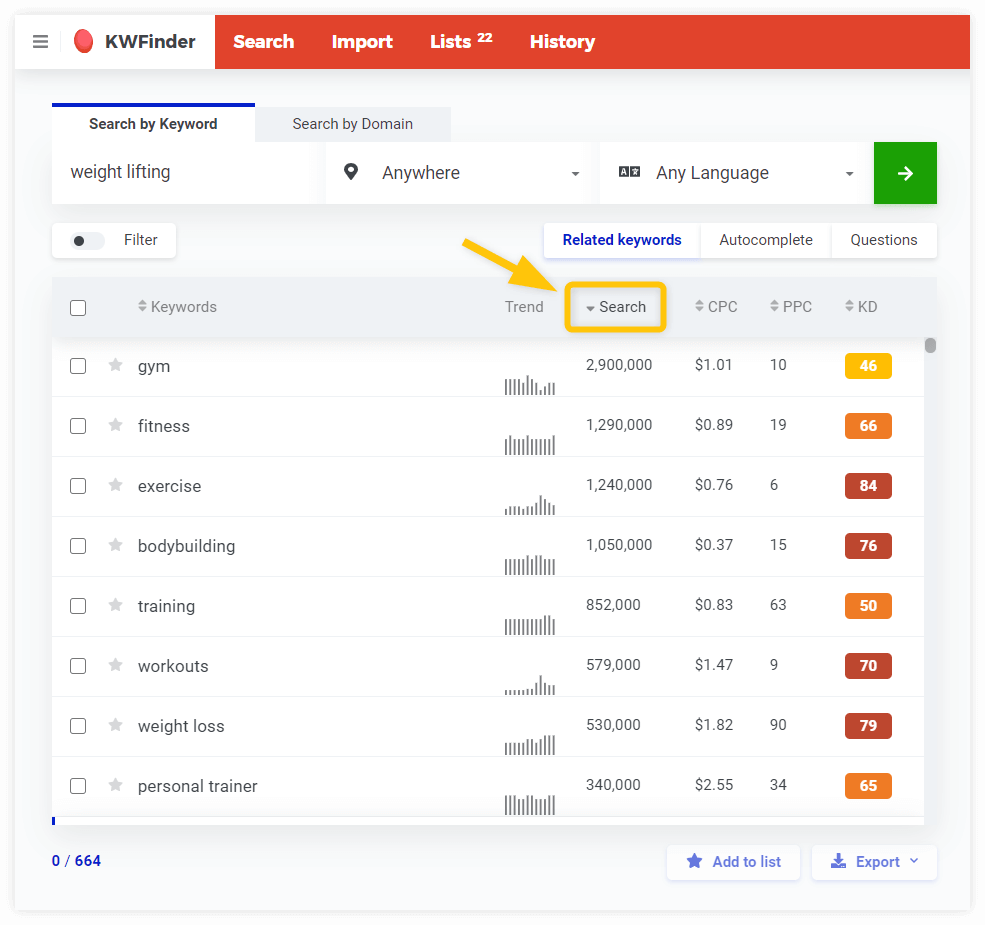Let’s cut right to the chase:
Latent semantic indexing (which is what LSI stands for) is a real thing.
LSI keywords? Nothing more than an SEO myth…
Of course, you may ask: Then why are you even bothering to write a post about LSI keywords?
Fair question. Here’s why:
- It’s important to dispel the myths around LSI keywords so that they don’t cause any harm to beginner SEOs.
- While LSI keywords don’t work, there are some legit ways to improve the quality of your content by including relevant topics. We’ll look at them.
Let’s start at the beginning…
What are LSI keywords?
The term LSI keywords is used to describe phrases that are semantically related to the main keyword or topic.
Let’s say the topic of the article is weight lifting. Then the LSI keywords are phrases like gym, fitness, weight loss, fitness routine, personal trainer, barbell, bench press, etc.
The assumption is this:
If a web page includes related keywords, synonyms and keywords that other high-ranking pages use in their content, the page will rank better.
So you need to find those LSI keywords and “sprinkle them” throughout your content so that Google knows your page is relevant.
Note: If you’re a freelance writer, you’ve probably come across clients who send their briefs along with a list of (LSI) “keywords” and their synonyms that you’re required to include in the post a certain number of times.
Let’s take a look at where this hypothesis comes from and why it’s not a valid keyword research technique.
The truth about LSI keywords
Someone mentioned LSI keywords to Google’s Webmaster Trends Analyst John Mueller on Twitter and this was his response:
There's no such thing as LSI keywords — anyone who's telling you otherwise is mistaken, sorry.
— John Mueller (official) — #StaplerLife · #Is (@JohnMu) July 30, 2019
Okay, so Google’s own expert says that LSI keywords aren’t real.
Then, you have Bill Slawski (an expert on search engines and one of the biggest brains in the SEO industry) saying this:
LSI keywords do not use LSI, and are not keywords.
— Bill Slawski ⚓ 🇺🇦 (@bill_slawski) March 31, 2019
He also claims that they’re not legit.
But if you do a Google search for “LSI keywords”, you’ll get over 1 million hits – most of which tell you how to use them in your SEO strategy.
So, what’s going on here? Are they real or not?
What is latent semantic indexing?
Latent semantic indexing (LSI) is a method that’s used to retrieve information from the so-called latent semantic analysis (LSA) that has been around since the 1980s.
It refers to a form of natural language processing that determines relationships between words and the documents that use them.
We won’t go into complicated mathematical calculations, but here’s one just to give you a better idea of what they look like::

Image source: Information Retrieval, Algorithms and Heuristics
This process can be used for a variety of purposes, though it’s most useful when analyzing (mostly static) enterprise databases.
For example:
- Classifying documents
- Filtering spam
- Essay scoring
- Summarizing texts
- Visualizing information
Do you know what latent semantic indexing can’t and hasn’t been used for though?
Google’s search algorithm and indexing process (or any other search engine, for that matter).
Does Google use LSI?
Google does not use latent semantic indexing.
The reason is simple:
LSI is an outdated technology.
Google doesn’t need to use a process like LSI because it has much more advanced algorithms working for it. These algorithms prioritize high-quality and authoritative content over those that compromise readability and break the visitor’s trust.
The question is: Why do so many people believe Google uses LSI?
It’s very hard to trace the origins of the LSI keywords phenomenon. It’s probably a combination of more aspects:
1. People confuse LSI and semantics
Many people who claim that Google uses LSI actually mean that Google uses synonyms and semantically-related words.
While there’s no evidence that Google ever used LSI, they are pretty open about using natural language processing and trying to understand the semantics of the searches.
As Google explains in their post about how Google’s search algorithm works:
Our synonym system helps Search know what you mean by establishing that multiple words mean the same thing. This capability allows Search to match the query “How to change a lightbulb” with pages describing how to replace a lightbulb.
Here’s a simple example of how one word can have various meanings and how semantics help to understand it:

Then, there’s this official explanation on how Google indexes the web:
When we index a webpage, we add it to the entries for all of the words it contains.
In Google’s own words, an indexed web page gets automatically added to search entries for every word on the page.
Somewhere along the way, someone might have made a connection between this statement and the way the LSI process works.
The thought process may have looked something like this:
“If I employ the right combination and frequency of these regularly occurring words from top-ranking posts, Google will automatically make an association between the quality and context of those sites with mine!”
However, Google’s search algorithm is much smarter than that.
At least, today it is.
2. It might have worked in the past
The practice of using the keywords unnaturally in the text as a black hat SEO tactic was definitely a thing in the 2000s.
That was back when Google’s algorithms were less mature though. Things have changed a lot since then.
To discourage bad SEO practices, Google has reshaped its algorithm over the years to penalize websites that use keyword stuffing to try and game the system.
- Panda (2011) penalized low-quality websites with thin content.
- Penguin (2012) penalized websites with spammy content and links (including keyword stuffing).
- Hummingbird (2013) refined the algorithm to prioritize context over the presence of individual keywords.
The main danger of the “LSI keywords” is that they are very close to these obsolete SEO techniques:
- Keyword stuffing
- Trying to reach a certain “keyword density”
Please remember: Neither of them works nowadays and they can actually harm your website’s rankings.
3. It sounds cool
Clark Boyd summed up the “LSI phenomenon” in his article on Search Engine Journal:
Perhaps its seductive appeal lies in its combination of a scientific name and an unscientific application. It sounds like it’s very advanced, but it really comes down to adding synonyms and related words, which anyone can do.
It’s a trap many SEO gurus have obviously fallen into.
Can you use LSI keywords to help your website rank?
Not really.
Or at least not in the way it’s usually described in “how to use LSI keywords” posts.
The main issue with the concept behind LSI keywords is that it puts way too much emphasis on the idea of weaving certain words into a web page artificially.
Here are 2 important things to remember:
- If you’re focused on checking off words from a keyword list or, worse, using them a certain number of times, you’re going to compromise the integrity of your content.
- You’re not writing content for a search engine to tell you, “Good job! You used all the same words as the top-ranking post does!” This is not how Google works. You don’t have to use every single semantically-related keyword.
The main issue with the concept behind LSI keywords is that it puts way too much emphasis on the idea of weaving certain words into a web page artificially.
So, what to do instead?
Write naturally and use your knowledge and common sense to cover the topic in the best way possible.
Here are two tips on how to find the right keywords:
1. Use a proper keyword research tool
The easiest way to get keywords related to a topic is to use a keyword research tool.
Remember the example “LSI keywords” for the word weight lifting from the beginning? Gym, bodybuilding, weight loss, etc…
You’ll get them as suggestions in every decent keyword research tool.
Here’s an example from KWFinder:

All you need to do is to enter the main keyword and sort the results by the highest search volume to see the most popular results.
What about LSI keyword tools?
There is no such thing as an LSI keyword tool…
The so-called “LSI keyword tools” just try to make the most of the “LSI keywords” buzzword.
The truth is:
- They don’t actually perform any kind of latent semantic analysis
- Instead, they just show you relevant keyword ideas the same way other tools do
If you were to use one of these tools, you’d see that it’s really no different than your standard keyword research tool.
There’s a mix of related topics, long-tail keywords, synonyms, autocomplete suggestions…nothing LSI about it.
It doesn’t mean you should use all the keywords from the suggestions list in your content.
Quite the opposite.
The main advantage of a keyword research tool is that besides the keyword suggestions, it also provides context and relevant metrics.
You’ll get to know things like:
- How many people search for the keywords?
- How hard it will be to rank for these keywords?
- What pages rank for these keywords in my desired location?
The last point – getting to know your competitors – is especially important in the next step:
2. Do a competitor analysis
Competitor analysis is an integral part of SEO.
It is much more than just exploring what keywords your competitors use.
You basically look at the top-performing pages for your keyword and focus on things like:
- What type of content ranks for the keyword?
- What content structure do the top pages use?
- How comprehensive are the posts?
- What sub-topics do they cover in the post?
- To what extent do they cover the sub-topics?
See? No LSI keywords…
The point is to think about “how to make the post as relevant as possible”, not “how to stuff the post with keywords so that Google thinks it is relevant”.
Let’s say you want to write a post about the differences between coffee and tea.
You look at the top-ranking posts and notice that all of them mention:
- caffeine content
- health benefits
- effects on energy levels
It only makes sense that you also cover these topics (some might call them “LSI keywords”) in your post since they are highly relevant to the topic.
You shape your outline around these topics naturally.
The wrong approach would be to make a list of keywords based on what keywords your competitors use (or what keywords a keyword tool told you to use) and use all of them in your post.
The point is to think about “how to make the post as relevant as possible”, not “how to stuff the post with keywords so that Google thinks it is relevant”.
Conclusion
LSI keywords are an SEO myth. However, while they won’t do anything for optimization, the idea behind – exploring semantically relevant keywords – can help you write better content.
For instance, there may be related topics you hadn’t thought to mention or hadn’t realized people would associate with your main topic.
You can ask yourself a couple of questions:
- Did I address all of the top concerns of my audience?
- Am I using the most popular wording for this problem/solution?
- Were there related points the competition failed to cover that would make my page stand out?
Just don’t spend too much time on this.
Your standard approach to keyword research should account for a lot of this anyway.
And if you’re fully unpacking a topic, you’re probably using these kinds of phrases and words while doing so. It’s something that just naturally happens.





